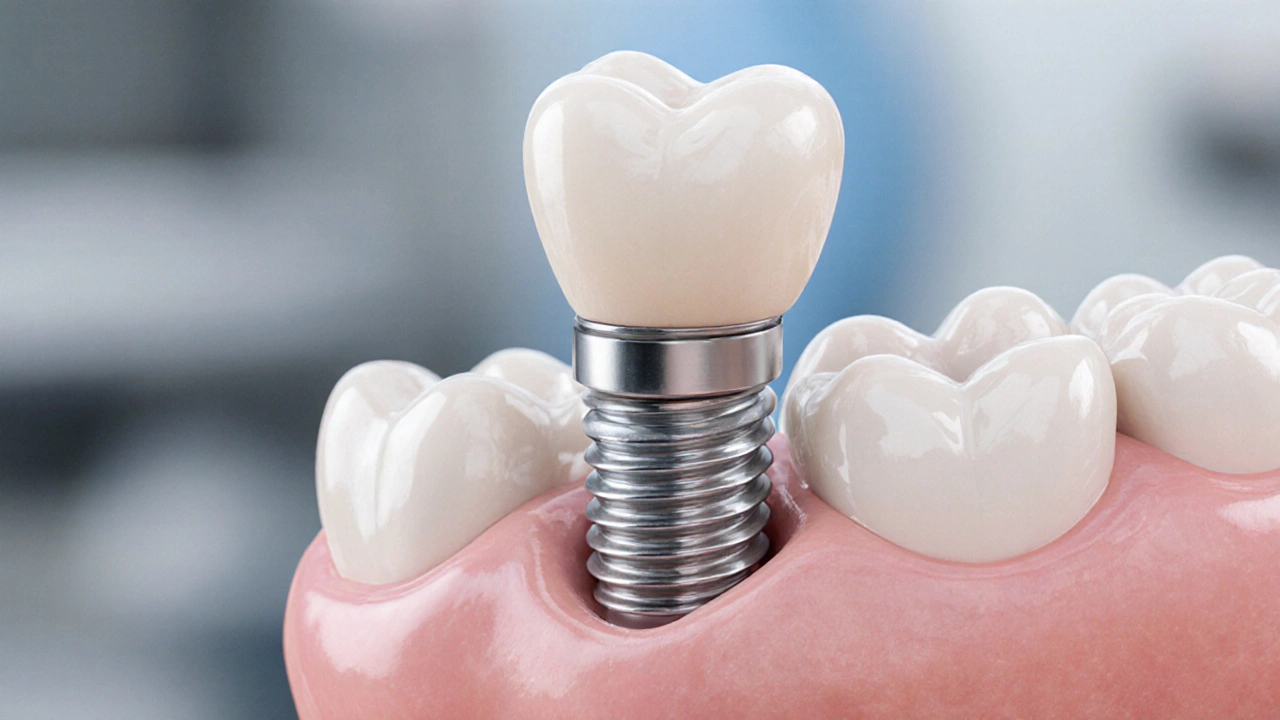Dental Implants Lifespan – What to Expect and How to Maximize It
When evaluating Dental Implants Lifespan, the period a dental implant stays functional and stable in your mouth. Also known as implant longevity, it relies on successful bone integration, the right material choice, and consistent after‑care. A key factor is Osseointegration, the process where the jawbone grows around and bonds to the implant surface, and the type of Implant Materials, such as titanium or zirconia, which influence durability and tissue response. Understanding these elements helps you set realistic expectations and plan for a longer, healthier implant experience.
Key Factors That Influence Implant Longevity
First, the quality of the bone matters. Dense, healthy bone provides a solid foundation for osseointegration, allowing the implant to act like a natural tooth root. If the bone is thin or has been compromised by disease, the implant may struggle to achieve a stable bond, shortening its useful life. Second, material choice plays a big role. Titanium has been the industry standard for decades because it resists corrosion and encourages bone growth. Zirconia offers a metal‑free alternative with a tooth‑like appearance, but some studies suggest it may be more brittle under heavy chewing forces. Third, your daily oral hygiene routine directly impacts lifespan. Plaque buildup around the abutment can lead to peri‑implantitis, an infection that damages surrounding bone and can cause implant failure. Brushing twice a day, flossing or using interdental brushes, and regular dental check‑ups keep the surrounding tissue healthy. Lifestyle habits also matter. Smoking reduces blood flow to the gums, impairing healing after surgery and increasing the risk of early failure. Excessive alcohol consumption and a diet high in acidic foods can erode gum tissue, making it harder for the implant to stay secure. Finally, professional maintenance cannot be overstated. Periodic cleanings allow your dentist to spot early signs of bone loss or gum recession, and they can adjust the prosthetic crown to prevent uneven pressure that might loosen the screw.
If you’re wondering how long dental implants lifespan typically lasts, most studies show a 10‑ to 15‑year average for well‑maintained cases, with many implants lasting 20 years or more. The exact number depends on the factors above—good bone quality, appropriate material, diligent oral care, and healthy lifestyle choices all push the clock further. By staying on top of hygiene, avoiding risky habits, and keeping regular appointments, you give your implant the best chance to serve you for decades.
Below, you’ll find a curated set of articles that dive deeper into each of these topics. Whether you want to compare titanium and zirconia, learn how to prevent peri‑implantitis, or understand the cost implications of long‑term implant care, the collection gives practical insights you can apply right away.
How Long Do Dental Implants Last? Lifespan, Care & Costs Explained
Discover how long dental implants truly last, the factors that affect their lifespan, and practical tips to keep them healthy for decades.

